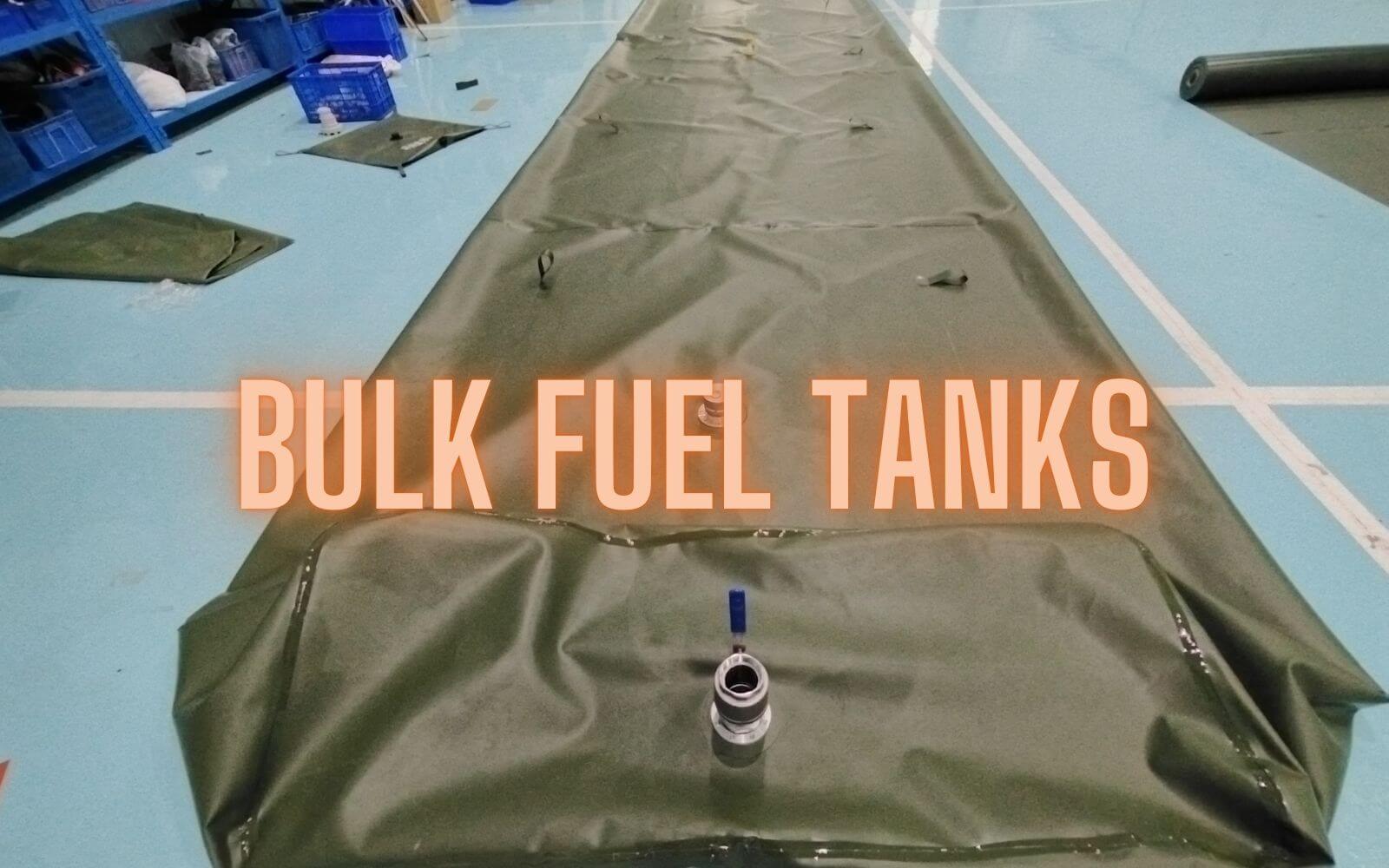BULK FUEL TANKS
Fuel storage is an essential aspect of industries ranges from agriculture and construction to mining and disaster relief. Historically, metal or plastic fuel tanks have been the standard for bulk fuel storage, but these traditional options come with some limitations—most notably, their inflexibility, heavy weight, and higher transportation costs, uneasy installation. In recent years, flexible bulk fuel tanks have emerged as a revolutionary solution, offering a more efficient, cost-effective, and sustainable alternative to rigid tanks.
In here, we explores how flexible bulk fuel tanks are transforming the fuel storage in industry and why they are becoming the go-to choice for businesses worldwide.
Adaptability and Space Efficiency
One of the biggest advantages of flexible fuel tanks is their adaptability. Unlike rigid tanks, which have fixed shapes and sizes, flexible tanks can customize the shape to fit various special spaces. This flexibility allows them to quick deploy in locations with limited space or irregular dimensions, such as remote sites, hilly terrains, or tight construction zones.
For businesses with fluctuating fuel storage needs, flexible tanks offer scalability. They can expand, easy relocate, or fold to take away when not in use, maximizing efficiency while minimizing unnecessary storage space. This feature makes flexible tanks an excellent option for industries requiring temporary or seasonal fuel storage, such as agriculture or emergency relief.
Cost-Effectiveness and Ease of Transport
Traditional rigid tanks are not only costly to the product, but also expensive to transport due to their heavy weight and packing volume. Flexible bulk fuel tanks, however, are lightweight and can compactly fold and roll-up when empty, reducing shipping and handling costs. This makes them ideal for operations in remote locations where transportation costs can skyrocket.
Installation is another area where flexible tanks outshine their rigid counterparts. These tanks don’t require heavy machinery or large crews for installation, meaning they can be set up quickly and easily, often with minimal labor. The quick deployment saves time and money, allowing businesses to allocate resources more efficiently.
Durability and Resilience
Despite being lightweight, flexible bulk fuel tanks use high-strength materials such as reinforced PVC or thermoplastic polyurethane (TPU). These materials design to withstand harsh environmental conditions, including extreme temperatures(-40~90 degree), UV exposure, and contact with abrasive surfaces.
Flexible tanks are puncture-resistant and can handle the daily wear and tear of fuel storage and transport without compromising safety or functionality. Their durability ensures a longer longevity lifespan compared to rigid tanks, reducing the need for frequent replacements and lowering overall operational costs.
Sustainability and Environmental Benefits
Sustainability is an increasingly important consideration across industries, and flexible fuel tanks offer significant environmental benefits. These tanks use recyclable materials, which means not one-time usage, using in right way, the flexible tanks can be used over 10 years, reducing waste and supporting circular economy practices. Additionally, their lightweight construction and compact storage capabilities mean fewer carbon emissions during transport and installation.
Flexible tanks also offer a higher level of leak resistance due to their seamless construction. This reduces the risk of fuel spills or contamination, helping companies comply with environmental regulations and protect surrounding ecosystems. By choosing flexible bulk fuel tanks, businesses can take a step towards more eco-friendly operations.
Customizability for Specific Industry Needs
Every industry has unique fuel storage requirements, and flexible bulk fuel tanks offer unparalleled customizability to meet those needs. Whether it’s adjusting the size, shape, capacity, or fittings, these tanks can be tailored to fit the exact specifications of a project. Additionally, flexible tanks can equip with specialized fittings, valves, and linings to handle different types of fuels, such as diesel, gasoline, or aviation fuel.
For industries like mining, construction, or marine operations, where conditions vary drastically, the ability to customize fuel storage solutions is a game-changer. This flexibility ensures that operations can continue without the risk of running out of fuel or facing storage issues.
Remote Site Fuel Storage
One of the most significant uses of flexible fuel tanks is in remote locations where traditional tanks would be difficult or expensive to install. Industries such as mining, forestry, and rural agriculture often operate in hard-to-reach areas where fuel needs but infrastructure is lacking. Flexible tanks can easily transport to these locations and quickly set up, providing a reliable fuel source without the logistical challenges of rigid tanks.
Disaster Relief and Emergency Response
In disaster-stricken areas, quick access to fuel is crucial for powering emergency generators, vehicles, and relief efforts. Flexible bulk fuel tanks are ideal for these situations due to their rapid deployment and ease of transport. They can be air-dropped or driven bulky to affected areas and set up in a matter of hours, ensuring that critical operations have access to the fuel they need.
Construction and Infrastructure Projects
Construction sites, especially temporary ones, require large amounts of fuel for machinery and equipment. Flexible fuel tanks offer an efficient solution by providing on-site fuel storage that can scale up or down depending on the project’s needs. Once the project is completed, the tanks can move away, store, or relocate to the next site, ensuring minimal disruption and maximum efficiency.
Military and Defense Operations
Flexible fuel tanks have used extensively in military applications due to their portability and rapid deployment capabilities. In conflict zones or remote military bases, flexible tanks provide a reliable fuel source that can quickly set up and remove as needed. Their durability also makes them suitable for use in extreme environments, ensuring that military operations can continue without interruption.
The shift toward flexible bulk fuel tanks represents a major advancement in fuel storage technology. These tanks offer numerous advantages over traditional rigid tanks, including cost savings, durability, adaptability, and environmental benefits. Whether for remote operations, disaster relief, or large-scale infrastructure projects, flexible tanks provide a smart, sustainable, and efficient solution for modern fuel storage needs.
As industries continue to prioritize efficiency, flexibility, and environmental responsibility, flexible bulk fuel tanks are set to become the standard for fuel storage, transforming how fuel is stored, transported, and managed across the globe.








